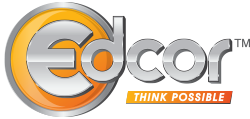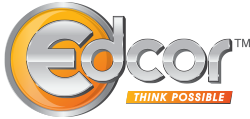“I need to talk to you about something very important. Can we meet for coffee after office hours?” said Angela sounding anxious.
Sure, 6 pm ok? I asked.
At the café, she looked like she had aged ten years in the past year and a half since we last met.
Are you ok? What’s bothering you? I probed.
The finances, she said, have started having a strain on my relationship. We work so hard yet we could only afford a Ranch house in the suburbs. We are still paying our student loan debts; mortgage and childcare added we are barely left with 20 percent of our earnings to manage the household and other expenses. I am planning to quit my current company and switch to a new one that has better pay and benefits. They’ll contribute $150 a month for my student loans till I reach a maximum benefit limit of $10,000 plus a signing bonus that will go directly towards my student loan pre-payment. But, I am scared, I’ve been with my current company for 9 years – I know everyone. Do you think I am making the right choice? She asked, with an expression that made me feel like she was looking for nothing but ‘Yes’ as an answer. I concurred.
What hit hard after the conversation was the reality of the times we’re living in. She is an older millennial like most of my other friends and me. We’re nearing 40, but Student Loan Debts still weigh high on our monthly budgets. We are not alone though; here are some inconceivable statistics for you.
Stats on the Student Loan Debt Crisis
The U.S. student loan debt stands at a staggering 1.73 trillion from 45 million borrowers. The average student loan debt amounts to $37,000. Two in five Millennials have some kind of student loan debt. Adding to the financial stress was the Covid-19 pandemic that resulted in pay cuts or stagnant wages, furloughs, higher medical bills, and the rising cost of living. Unsurprisingly, the PwC Financial Wellness Survey of 2021 showed that 72 percent of incumbents would be attracted to a new company that cared more about their financial wellbeing, 45 percent indicated that financial worries were a cause of distraction at work, and an astounding 81 percent of employees needed advice on personal finances.
The burdens of student loan debts are recognized by both the U.S. political parties alike according to a study by Harvard. The study provides further insights into the looming issue of student debts for millennials who currently form 50 percent of the American workforce, and are projected to become 75 percent of the workforce globally by 2025. To this end, the Consolidated Appropriations Act of 2021 brought about an extension – till 31 December 2025 – on Section 127 of the Coronavirus Aid, Relief and Economic Security (CARES) Act that made employers student loan repayment contributions up to $5,250 tax-exempt. There is a buzz about two more bills being proposed that would take the tax-exemption for employer educational assistance limits to $12000 for 2021-22 and beyond. According to current estimates, one in three employers will likely offer this critical benefit in some form in the future owing to these legislations.
I couldn’t agree more with the CEO of Vault, Romy Parzick’s statement to CNBC “This is such a massive problem that just the individual being responsible and paying off debt isn’t gonna make a dent in the overall crisis, especially now with the impact of coronavirus. It’s really important to take a “three-pronged approach” according to her. In addition to individuals paying down their loans; employers need to take responsibility because these employees are getting this education to help their employers advance their mission and objectives. And then the government has a role through relief efforts.”
Why is it an Attractive tool to Attract and Retain Talent?
The overwhelming data on Student debts, the importance of employee financial wellness, coupled with the ongoing worker shortage are compelling reasons for CHROs to include Student Loan Assistance and Advising as a benefit to attract and retain talent.
Company contributions towards employee student loans help shave off years in repayments and save interest dollars for the beneficiaries. Usually, the contributions are capped to a lifetime maximum and there’s a before and after employment length clause for eligibility. As a result, the benefit serves as both an effective talent attraction and retention strategy. There are ways in which companies offer this benefit.
Ways to Implement Student Loan Repayment Benefits
Cash Contributions:
The most common type of company contribution towards an employee’s Student Loan Debt is through a monthly cash input over and above the employee’s existing payment towards the loan. Most companies start with $100 per month and have a benefit upper limit or a fixed term. Many hospital systems and large healthcare systems were early adopters of this benefit as they fight for talent. Some of Edcor’s Clients contribute $100 – $500 a month, or a one-time payment of up to $10,000.
Employee Payment Equivalent Contributions:
These are cash contributions equivalent to the employee’s payment towards the Student Loan Debt. There is an upward maximum of this contribution. However, the employee needs to make extra payments than their monthly minimum to get the maximum benefit of such programs. Some employees choose their bonus or sign-on bonus to be paid directly to their loan holder, often after 90 days or 6 months of service. This amount is usually up to the $5250 tax limit, but in some cases, it could be up to $10,000.
Most companies include these contributions as a part of fringe benefits via third-party Specialized HR benefits providers – like Edcor – who offer Student Loan Repayment assistance services. The services are broadly categorized under Repayment assistance, Refinancing or Financial planning, and Counselling resources for Client employees. Edcor’s unique offering to Clients in the Freedom service line includes flexible and customized solutions, advising for HR policy writing tied to upskilling and retention goals, and linking of the employee’s student loan repayments and tuition assistance to the CARES Act for benefit maximization.
I hope readers perceive the post for what it is – a bid for change!
Don’t let Student Loan Debts derail your employee’s dreams. Retain your Best. Reach out to Edcor.

Edcor is a woman-owned business and is the benchmark in education benefits administration. For 40 years, our customized service and solutions have allowed Fortune 1000 Clients to use education benefits programs for employee recruitment, retention, and development.
Spardha Khera, Edcor



